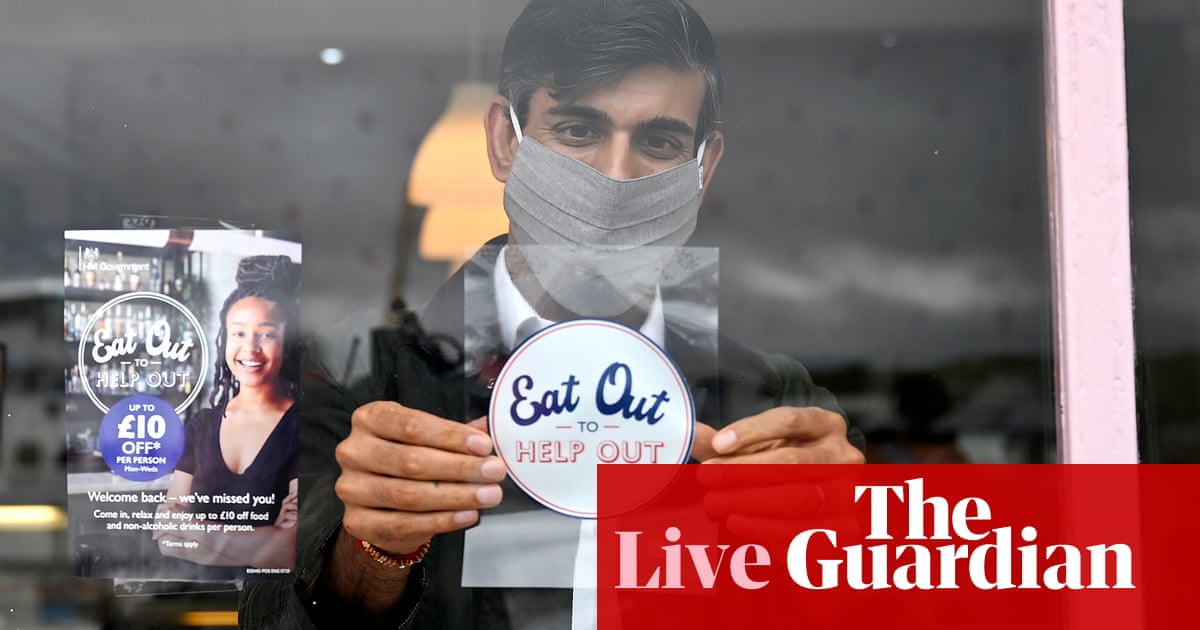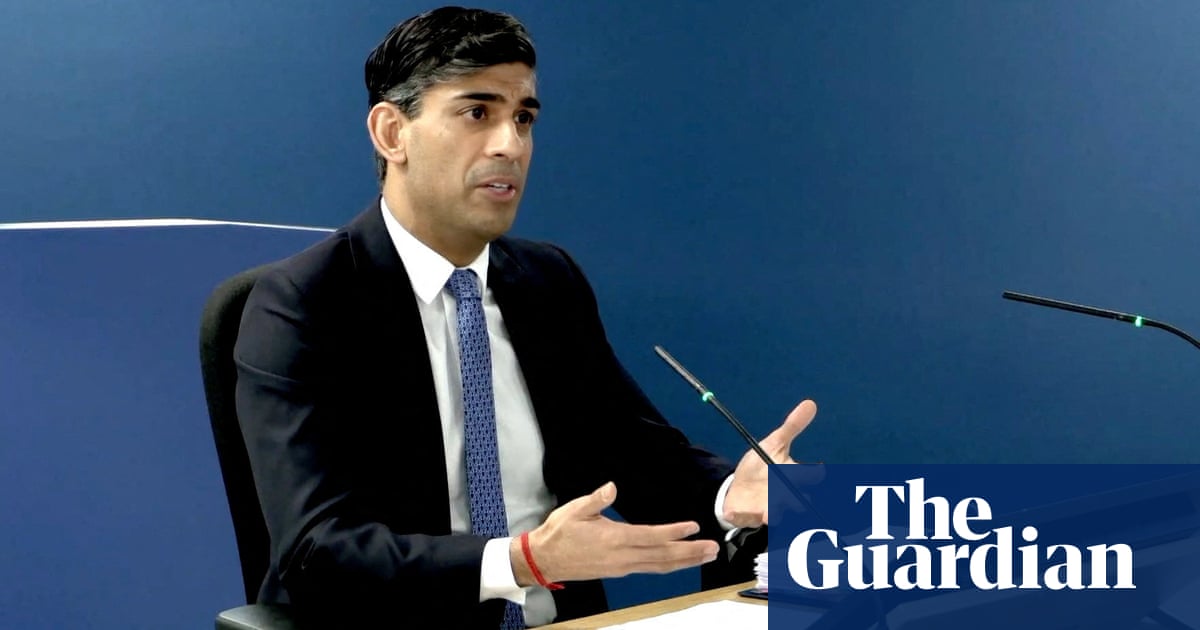
he government has treated the pandemic as a political campaign. Given the choice between style and substance, it has opted at every turn for big, splashy gestures, lurching from one gimmicky announcement to the next. But unlike many of its responses to the Covid-19 crisis, the “eat out to help out” scheme launched by the chancellor, Rishi Sunak, has been a remarkable PR hit with the British population.
More than 60m discounted meals have been claimed as part of the scheme. The trade body UK Hospitality is calling for it to be extended, and some restaurants are funding their own discounts into September in a bid to keep footfall going. But while every eat out to help out restaurant participant I’ve spoken to has been grateful for the short-term boost, many have also been ambivalent about the scheme’s effects – and doubtful it has done enough to confront the deepening crisis the hospitality industry faces.
The scheme has given a quick cash injection that offers little indication of whether participating restaurants will still be viable businesses come September. “It’s great that customers are feeling more comfortable coming out to eat and I do appreciate the help from the government, but I’m happy it’s done now and I don’t want it to be extended,” Mandy Yin, the chef-owner of Sambal Shiok Laksa Bar and Nasi Economy Rice in north London, tells me. After getting a pavement licence from the council that meant people could eat takeaway food outside, Yin signed up for eat out to help out. The scheme has dramatically boosted trade (“At Nasi it added on maybe 100% of normal revenue yesterday, and at Sambal Shiok it was probably about the same or even more”), but Yin doesn’t feel this has been sustainable.
Being too busy might sound like a welcome problem after months of no diners at all, but the August footfall has had an impact on the mental and physical health of restaurant staff. After a quiet summer period, understaffed kitchens have been deluged with orders, and front-of-house teams are struggling to keep diners happy while carrying out safety protocols and adhering to social distancing. Restaurants have had a gruelling, erratic time during the pandemic; some have pivoted to selling groceries and takeaways just to keep their heads above water, before the short-term boost from eat out to help out arrived. Many staff are exhausted.
And, of course, there’s the elephant in the room: although the appearance of diners in restaurants may visually suggest that everything has gone back to normal, coronavirus is still a huge risk. One restaurant owner tells me they fear that what happened in Leicester, when the city was forced to enact a local lockdown after a spike in cases, could happen anywhere, causing many restaurants to shutter. Listening to restaurateurs describe the gymnastic feats of creativity and resourcefulness they’ve performed this year, it’s hard not to feel that their staying afloat during the summer is as much a testament to their resilience as it is to the Treasury’s strategic nous.
For diners and restaurant owners alike, the scheme has made Wednesday the new Friday; many participating restaurants have been as busy midweek as they usually would be at the end of the week. But for lots of places, this has come at the expense of weekend trade – and it isn’t a like-for-like swap. People who might order a bottle of wine and several courses on a Friday night for their one weekly meal out have been sticking to tap water and the two cheapest items on the menu. And for every regular diner who’s thrilled to be back and mindful of the grim circumstances that restaurants face, there’s a grabby discount-hunter who feels entitled to a bargain and becomes difficult if they have to wait during a busy service.
There are long-term dangers in making restaurants’ short-term survival dependent on discounts: Gary Usher, the chef behind the north-west’s Elite Bistros group, warned on Twitter recently that they could cause people to lose sight “of what food really costs”. Britain already spends less, proportionally, on its groceries than anywhere else in the world apart from the US and Singapore – and while the affordability of food is an urgent concern, particularly for those on low incomes, ultimately nothing good can come of getting into the habit of paying prices that don’t reflect the sourcing of the ingredients, the labour involved in producing, preparing and serving them, and the eye-watering cost of renting a space.
Eat out to help out is a one-size-fits-all solution, and the idea that everyone is in it together is a superficially attractive one. But like Ofqual’s pilloried A-level algorithm, some would say that rather than levelling the playing field, it’s entrenched inequalities by failing to take into account radical differences in businesses’ circumstances. Many in the industry feel the scheme has disproportionately benefited wealthy, big-name chains who aren’t struggling with rent or bills, and really didn’t need the help. “I see signs in McDonald’s window advertising it and my blood boils, to be honest,” says Ed McIlroy of Four Legs, whose cheeseburgers have been hailed as London’s best.
From its inception, Sunak’s scheme has been framed as a jump-start, but while the cashflow boost has been very welcome, the sad truth is that it hasn’t addressed any of the existential threats the hospitality sector is facing. As things currently stand, operators unable to pay their rent can be evicted by their landlords at the end of next month, while the winding up of the furlough scheme in October will lead to massive job losses across the sector. An avalanche of August bookings has made it difficult for owners to honestly assess their business’s survival prospects and draw up appropriate plans for the future. Without wider-ranging support, for many people eat out to help out will just have delayed a horrible inevitability.
Tomorrow is the last day of the scheme. If you’ve booked a meal somewhere, make sure you order enthusiastically and tip generously. Enjoy yourself, and the food. But if you care about the hospitality industry, do also ask yourself whether the government is really doing all it can to protect the people it relies upon. The answer might well leave a nasty taste in your mouth.












